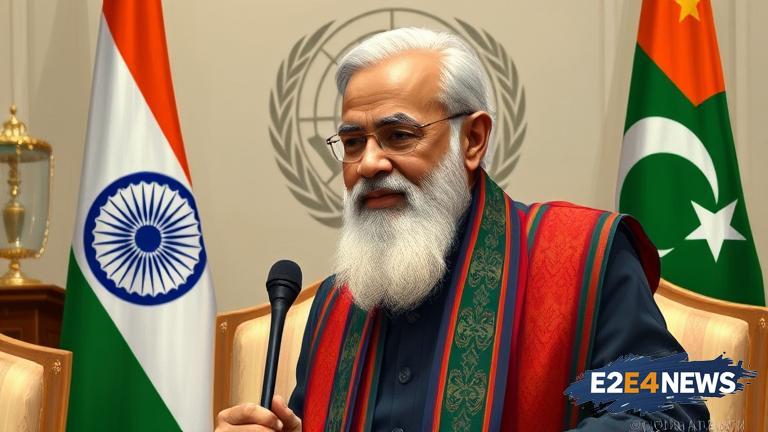India has been actively engaging with the Taliban regime in Afghanistan, with a recent push for a United Nations Security Council (UNSC) travel ban waiver to facilitate a visit by the Taliban’s Foreign Minister. This move is seen as a strategic attempt by New Delhi to undercut Pakistan’s influence in Kabul. The development comes as India seeks to strengthen its ties with the Taliban government, which has been isolated by the international community. The UNSC travel ban waiver would allow the Taliban FM to travel to India, marking a significant shift in India’s approach towards the Taliban regime. India’s outreach to the Taliban is driven by its desire to protect its interests in Afghanistan and to counter Pakistan’s influence in the region. The Taliban’s takeover of Afghanistan in August 2021 led to a significant shift in the regional dynamics, with Pakistan emerging as a key player in Kabul. However, India’s engagement with the Taliban regime is aimed at reducing Pakistan’s influence and promoting its own interests in the region. The visit by the Taliban FM would be a significant development, marking a new chapter in India-Taliban relations. India has been providing humanitarian assistance to Afghanistan, including food and medicine, and has also been engaging with the Taliban regime on issues related to terrorism and security. The UNSC travel ban waiver would be a major breakthrough, allowing the Taliban FM to engage with Indian leaders and officials. The development is seen as a significant setback for Pakistan, which has been trying to consolidate its influence in Kabul. Pakistan’s foreign ministry has been critical of India’s engagement with the Taliban regime, accusing New Delhi of trying to undermine its influence in the region. However, India’s approach towards the Taliban regime is driven by its desire to promote regional stability and to protect its interests in Afghanistan. The visit by the Taliban FM would provide an opportunity for India to engage with the Taliban regime on issues related to terrorism, security, and economic cooperation. India has been seeking to promote its economic interests in Afghanistan, including the development of infrastructure and trade. The Taliban regime has been seeking to promote its economic interests, including the development of mining and agriculture. The visit by the Taliban FM would provide an opportunity for India to engage with the Taliban regime on these issues. The development is seen as a significant shift in India’s approach towards the Taliban regime, marking a new chapter in India-Taliban relations. The UNSC travel ban waiver would be a major breakthrough, allowing the Taliban FM to engage with Indian leaders and officials. The visit would provide an opportunity for India to promote its interests in Afghanistan and to counter Pakistan’s influence in the region. India’s engagement with the Taliban regime is driven by its desire to promote regional stability and to protect its interests in Afghanistan. The development is seen as a significant setback for Pakistan, which has been trying to consolidate its influence in Kabul. The visit by the Taliban FM would mark a new chapter in India-Taliban relations, providing an opportunity for India to engage with the Taliban regime on issues related to terrorism, security, and economic cooperation.





